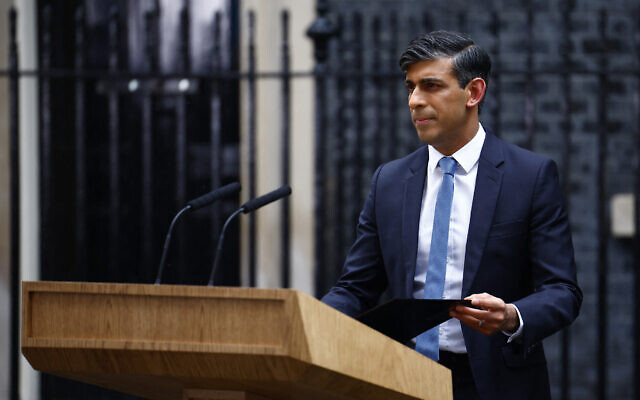Published 05/23/2024 09:24 | Edited 05/23/2024 09:30

UK Prime Minister Rishi Sunak dissolved Parliament this Wednesday (22) and called a general election on July 4, a month early.
Sunak has been saying for weeks that there is evidence that the British economy is improving.
“I believe my work since becoming prime minister has shown that we have a plan and that we are ready to take decisions that will prosper the country, no matter how bold they may be,” he said. “It is time for England to choose its future.”
In his speech in front of Number 10 Downing Street, the official home of the British government in London, Sunak said the government had “achieved two major milestones” in reducing inflation and growing the G7 economy faster.
However, surveys of opposition parties, the press and voting intentions point to another reality.
In recent years, UK average annual inflation has risen from 2% to a total of 22% from 2021 to today. At the same time, real wages have fallen by 2.3% since the start of 2021, making it more difficult for the majority of people to pay their energy bills and weekly shopping.
Although April inflation indicated a sharp drop in prices, from 3.2% in March to 2.3% the following month, prices of goods and services for consumers continued to grow.
In power since May 2010, Gordon Brown (Labour) gave way to David Cameron, the Conservatives have led the UK into a “cost of living crisis” for the past three years.
Due to the cost of living crisis, polls indicate that the Conservatives will win the elections expected in November.
According to a poll compiled by the Politico website, the difference between the acronyms is nearly 20 percentage points, with Labor voting intentions in the general elections at 44% compared to 23% for the Conservatives.
Also, Sunak is very unpopular. According to Ugo, 20% of Britons support him, compared with 34% who support Labor leader Keir Starmer.
The opposition says bringing the general election to July 4 would avoid an even worse defeat for the Conservatives, who must leave the UK leadership after more than 14 years marked by the Brexit vote and a succession of five prime ministers. Ministers in eight years.
Also Read: App delivery companies go on strike in UK
Also read: Anti-Brexit movement grows and perverse effects on workers